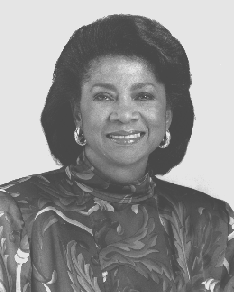Page 1
[Begin Tape 1, Side A]
Biagi: Let's start by asking you about your life now, and we'll go back later, what it is your assignment is and where you are working, because this is oral history. People will not know any of that background. Let's start there.
Davis: I have the title of urban affairs reporter or specialist. I wish I knew what it really meant. I can only give you just a little background on how I got the title. When I first went to work at Channel 4 [KRON-TV], I was working at Channel 9, at the time they discontinued the news, and I thought, "This is it. I'm going to get out of broadcasting. It's all over with for me." The one place I thought I'd never get a call from to go to work was Channel 4. I was president of the broadcasters union, and just preceding this, we had had one of the longest and most bitter performers union strikes in the history of the city.
Biagi: Is that AFTRA [American Federation of Television and Radio Artists]?
Davis: Yes. I was the president, and I had been walking up and down picketing outside of the station. So I thought, "They're certainly never going to give me a job." But that was the very first phone call asking if I wanted to come work for Channel 4.
Biagi: What year was that?
Davis: That was in 1981. So I said, yes, I did, but I didn't want to be a news anchor anymore. I just thought it was too stressful. I have this blood pressure problem. I wanted to keep reporting, but I didn't want to do that anymore. So they said, "What do you want to do?" I said, "I like reporting on the city and city government, and I love politics. I'm one of those people who find planning committee hearings fun." [Laughter.] "I feel the most important job we do is keeping people informed about what government is doing and what government does and how government action impacts our lives. The news director, Mike Ferring, said, "What do you want to call that?" I said, "I don't know what to call it. All of the things have to do with urban issues one way or the other." "What about urban affairs? Okay, that's what we'll call you." [Laughter.] So that's how the title came about.
Later, I was renamed the city hall reporter, and for a few years, in addition to my office at KRON, I had an office in city hall, and I reported to work there every day and reported on San Francisco government until something else struck my fancy.
Then I got a news director that didn't like San Francisco, so I continued to be responsible for San Francisco city government and was the resource on stories to do with government, but I wasn't given the time to go out and really sit in and spend two or three hours listening to people debate whether they should close off some one-way streets or not.

